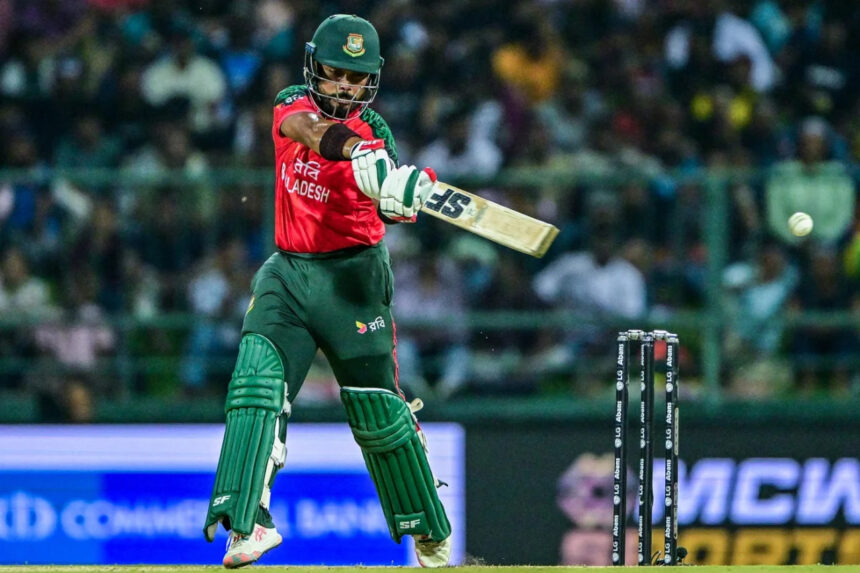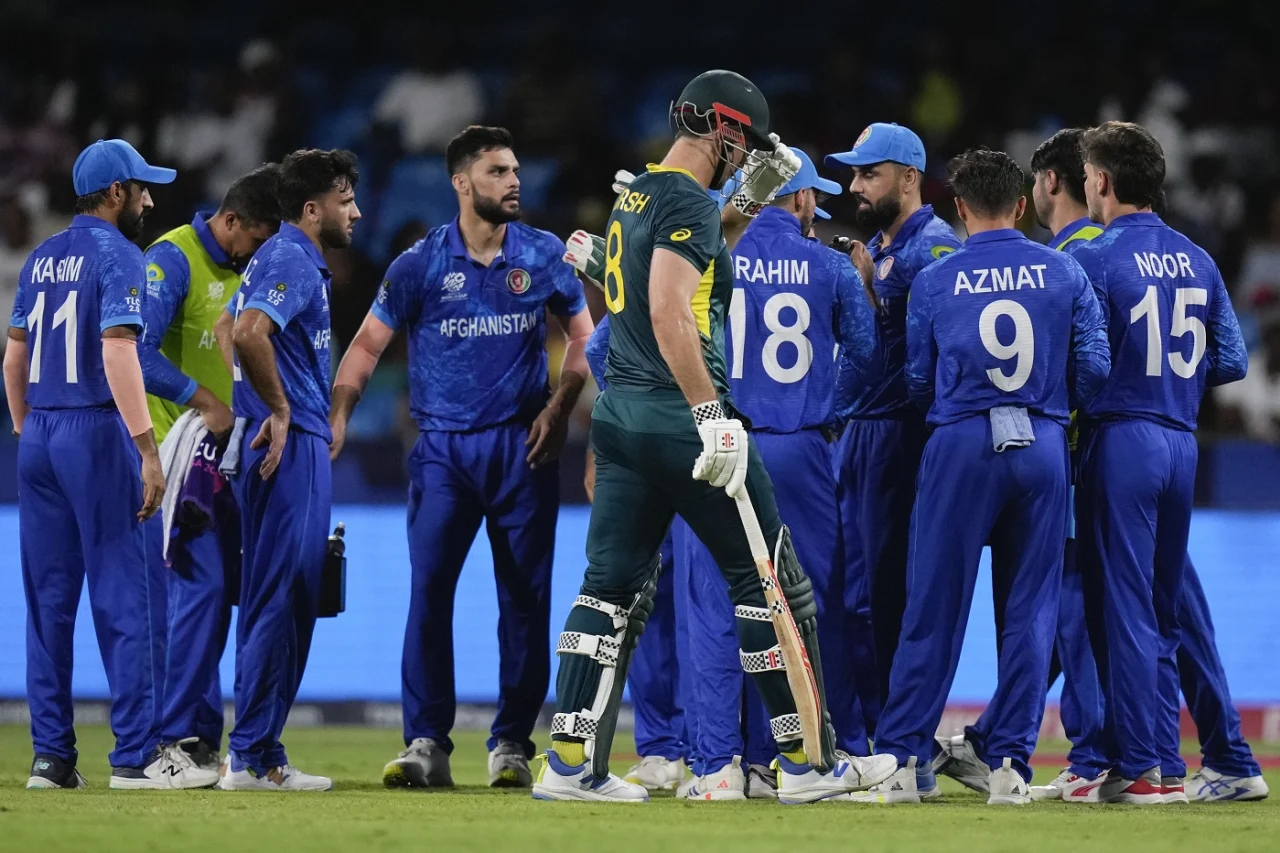Parvez Hossain believes six-hitting ability is giving batters a real edge in adapting to T20 cricket.
It didn’t start well for Bangladesh — Tanzid Hasan fell in the very first over, and Liton Das followed him soon after. Under pressure, Towhid Hridoy walked in and got a free hit right away, which he dispatched for a six over long-on. In the next over, Parvez Hossain smashed a slog sweep for six. Keeping up the aggressive intent, the left-handed opener launched Salman Mirza for a one-handed six.
Hridoy and Parvez combined to ease the early pressure in the chase of a small target by hitting four sixes within the first three overs. They later paced the innings sensibly and took Bangladesh close to victory.
After sealing a comfortable 7-wicket win, Parvez said that Bangladesh’s batters are now benefitting from the ability to clear the ropes regularly — a key factor in modern T20 batting.
The numbers back him up. Against Pakistan at the Sher-e-Bangla National Stadium, Bangladesh chased a target of 111 with seven sixes, five of them from Parvez, who top-scored with 56 off 39 balls.
In total, Bangladesh have hit 88 sixes in 10 T20Is this year — an average of nearly 9 sixes per game. Despite playing T20I cricket for nearly 19 years, Bangladesh have hit 10 or more sixes in a match only nine times — seven of those have come in the last two years, with four happening this year alone.
Individually too, the current generation is setting new benchmarks. Parvez has struck 24 sixes in 16 innings, Tanzid Hasan has 32 sixes in 28 innings, and finisher Jaker Ali also has 32 sixes from 28 innings — no other Bangladeshi batters have hit more sixes per innings in T20Is. Close behind them is Towhid Hridoy with 37 sixes in 39 innings.
Since Tanzid’s debut, only six other batters from full ICC member nations have hit more sixes in T20Is than him.
Parvez is right up there too — in 16 T20Is, he has already hit four or more sixes in an innings on three occasions — a Bangladesh record. The others who have done it — Mahmudullah (141 matches), Liton Das (105 matches), and Tamim Iqbal (74 matches) — have all played far more games.
Clearly, Bangladeshi batters are becoming more adept at clearing the boundary in T20 cricket. And Parvez echoed this sentiment at the post-match press conference after beating Pakistan:
“You must have the ability to hit sixes to play T20. By the grace of Allah, every player in our team has that ability. Even the last batter can hit sixes. This is really helping us. The better we get at this, the better it will be for our team.”
But it wasn’t an easy knock for Parvez. He was coming off back-to-back ducks against Sri Lanka, staring down a hat-trick of zeroes when he walked out against Pakistan. Adding to the pressure, Bangladesh had already lost Tanzid and Liton early in this game. But the left-hander turned it around with a match-winning knock — crediting his success to staying focused on the present.
“I just tried to stay in the present. What happened against Sri Lanka ended there. My full focus was on this series. I was always thinking about what’s coming next, what the next ball would be.”
Even though it was a small target, losing two wickets for seven runs early on put Bangladesh under pressure. Parvez and Hridoy steadied things with a 73-run stand off 62 balls for the second wicket, before Parvez finished the game alongside Jaker in an unbeaten 32-run partnership off 18 balls.
Parvez also shared their approach after the early setbacks:
“We tried to build partnerships. Our intent was positive. The plan was to play with good intent but take as little risk as possible.”
“When you lose wickets in quick succession, pressure comes on any team. Our plan was to build a small partnership first. With positive intent, we aimed to grow the partnership from there.”
This was Bangladesh’s first T20I since May 2024, back at their home ground in Mirpur. Though familiar territory, the unpredictable nature of the pitch was a big talking point before the game.
After the match, Pakistan head coach Mike Hesson expressed his frustration about the pitch. But Parvez felt their ability to read the conditions quickly made the difference.
“Our plan was to assess the wicket as quickly as possible on match day. The sooner we could do that, the better for us. Losing a couple of wickets early is normal in T20 cricket. But for the rest of us, we understood the wicket well after that.”
The second T20I will be played at the same venue on Tuesday.






